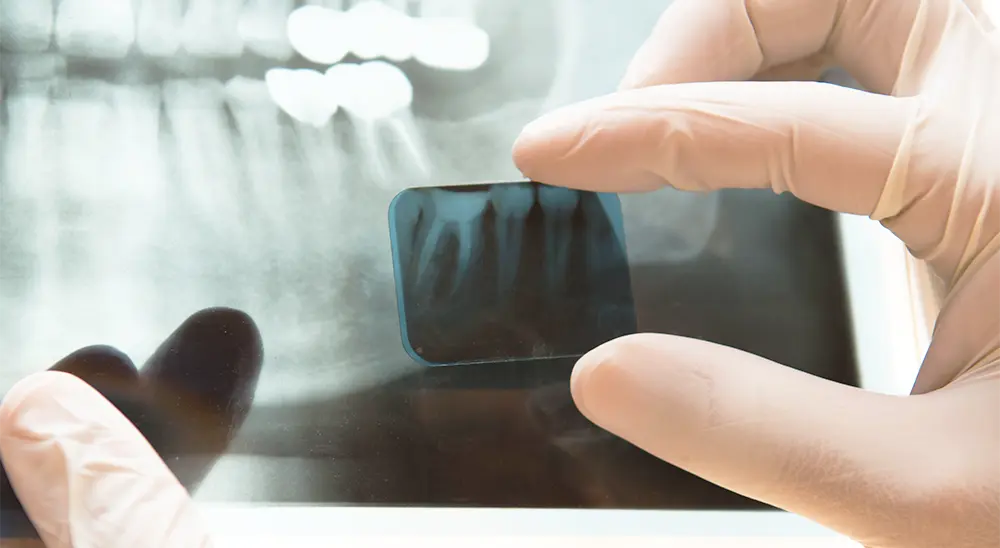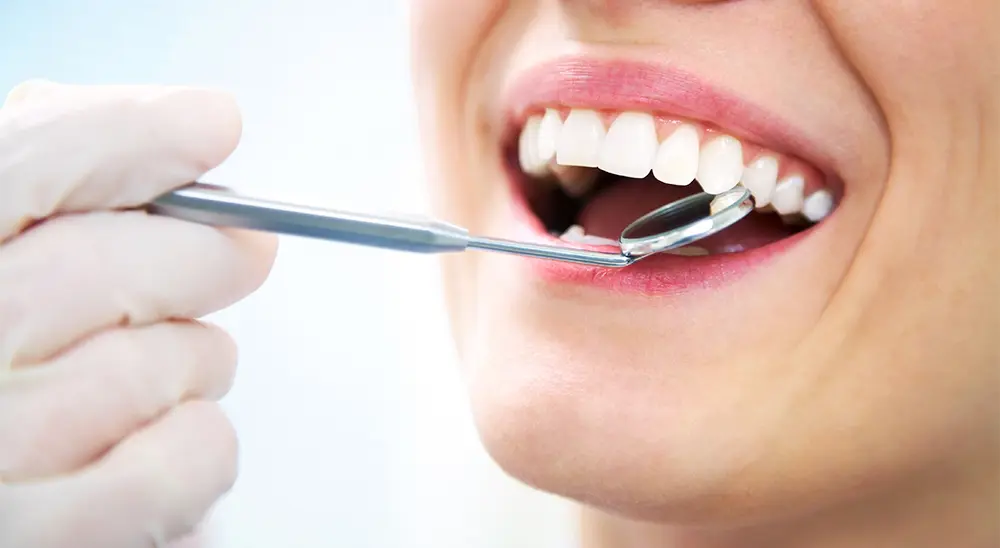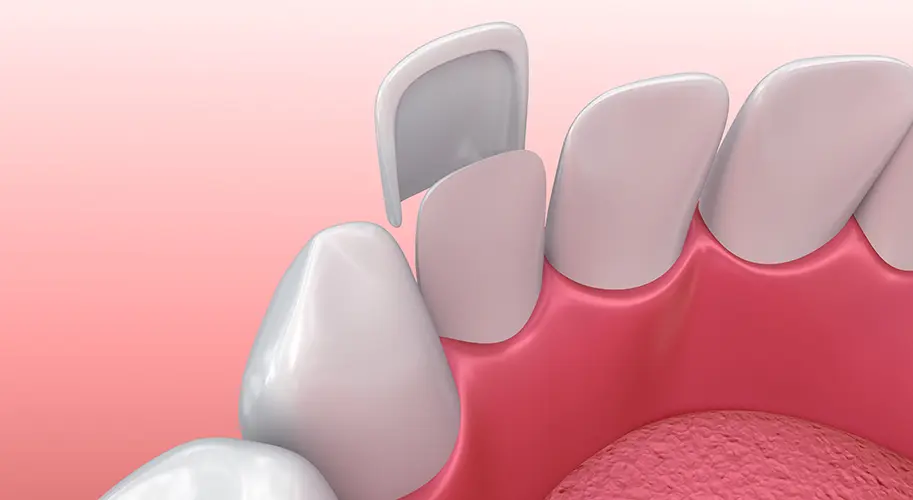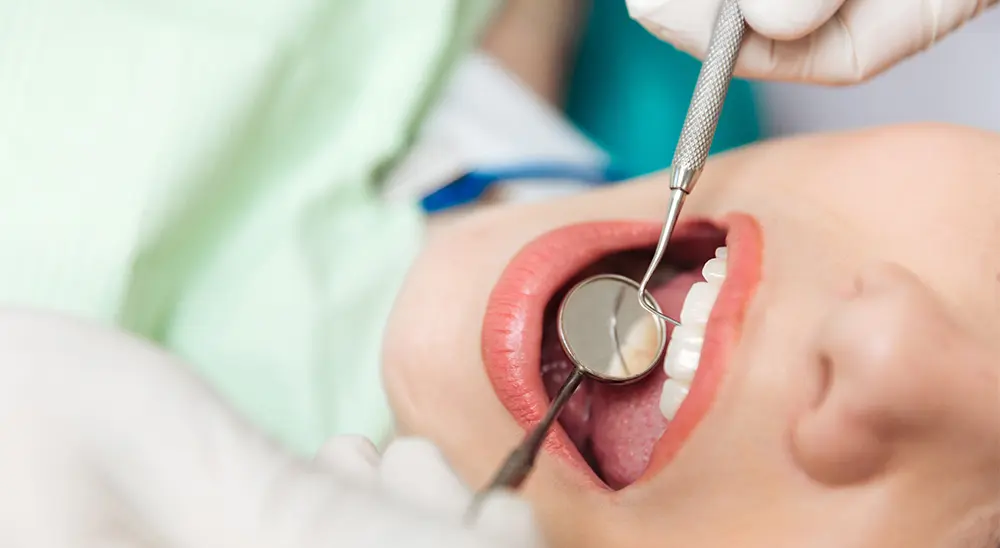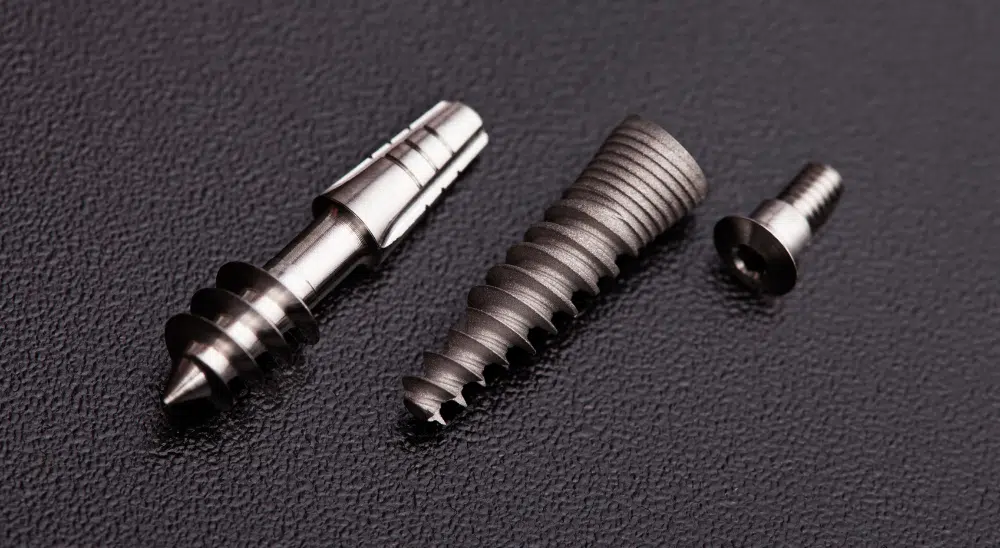
Dental implants - materials
The best materials for making dental implants.
For decades, dental implants have been the most revolutionary and reliable way to restore missing teeth. However, a number of patients ask themselves “What material are they made of?”, “Which is the best?”, “Are they dangerous to your health?”, “Does the organism accept them as a foreign body?”. The answer to these and many other questions related to the topic, read in our new blog article.
Titanium and titanium alloys
Titanium is a type of metal that is most used in dentistry to make dental implants and is considered the “gold standard” due to its excellent properties – strong, light, biocompatible with the human body, and integrates (connects) perfectly with the jaw bone.
Commercially pure titanium usually contains microelements, including iron, nitrogen, oxygen, and carbon, which improves mechanical properties. There are also titanium dental implants on the market, mixed with titanium alloys, which most often contain 6% aluminum and 4% vanadium and are heat-treated to improve strength. The result is a low-density material that is resistant to corrosion and wear.
Many patients are afraid of concerns about allergic reactions to titanium, but this probability is negligible because the human body does not consider titanium elements as foreign bodies. The few known cases of such allergies were caused by titanium alloys, not the material itself. This should not bother you, as you may be tested for metal allergies before the implants are placed, and thus the result during and after the procedure would be completely predictable.
When titanium implants are placed, the success of dental implant treatment is 97%.
Zirconium
Zirconium is a material often used in dentistry, but rather for making dental crowns. Zirconium has been used for a relatively short period of time to make dental implants, so its potential for longevity has not yet been proven and less is known about the way it is osseointegrated.
Zirconium implants do not cause allergies and in most cases are single-part, unlike titanium implants, for example, which can be two-part (classic) implants or one-part (basal and compression) implants.
Zirconium implants (especially those with a smaller diameter) are not recommended in patients with stronger masticatory function, as they are known to break.
The most popular components for making dental implants are titanium or titanium alloys, and millions of patients have taken the opportunity to have this type of implant placed. However, some patients have sensitivity or allergies to metals and are reluctant to risk their treatment with implants. For patients in this situation, zirconium may be a good option when used in the right clinical situation.



